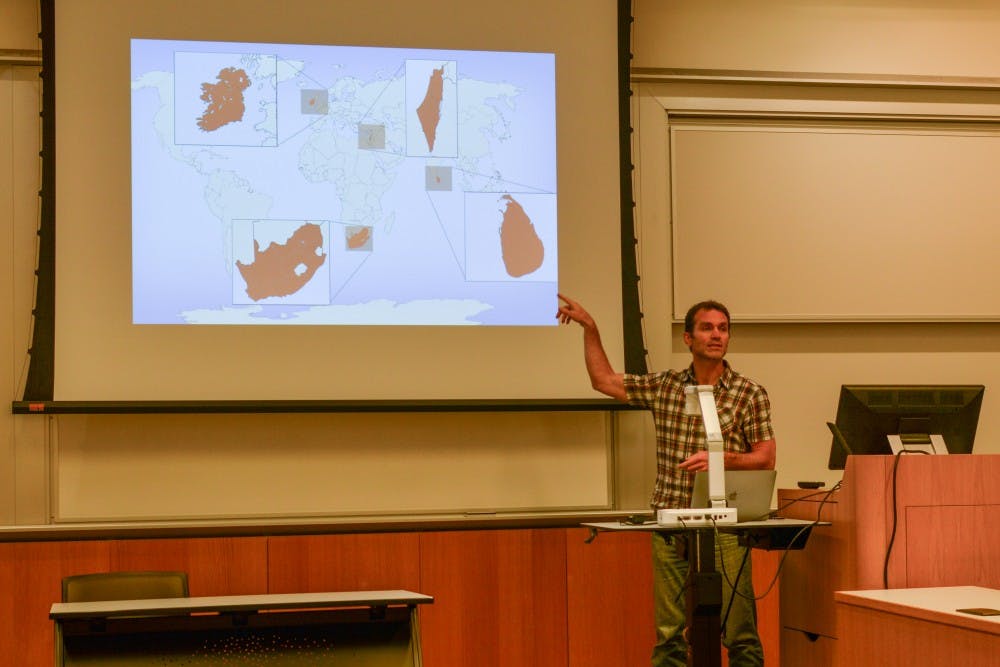Penn professor Emile Bruneau discussed worldwide conflict with Penn students — from the perspective of neuroscience.
Penn Undergraduates for Refugee Empowerment organized the event with Bruneau, a research associate at the Annenberg School for Communication, to talk about ways to reduce anti-refugee hostility. Bruneau’s neuroscience-based approach had two aims: to better understand the processes that drive people to conflict, and to better understand how we can transcend them.
“The first part is going to be terribly depressing,” Bruneau warned students. Of his travels to different parts of the world, he said, “I saw all these eerie similarities between what was driving people to conflict.”

He explained that some of the natural tendencies of the human brain include offering a biased view of the world and creating social divides. “Our brains tend to think of the social world not just as me and you, but as us and them.”
According to his research, people also tend to be less forgiving to people with different beliefs, seek out information which only confirms their beliefs, and also inflate ideological divides in their minds.
He provided an example of a study where people were randomly assigned to blue shirts and red shirts, and even though they were aware of this random assignment, this division still affected their views of their companions and negative enhancement of the other team’s qualities. Bruneau added that if people were to then switch sides, they would immediately start enhancing the positive qualities of their new team.

He added that during war and colonization, the opposite side is often depicted as an animal. The danger of this, he explained, is that, “If you can convince somebody, that the other group is closer to animals than humans, then you morally disengage them from concern over their suffering.”
Wharton junior and attendee Kelsie Stewart said that the talk was “pretty depressing, aside from the glimmer of hope at the end.” She said she was surprised by how deeply embedded people’s biases are. “They can be thinking some truly terrible things, and not even realize they’re terrible,” she said.
“Here’s the hopeful part,” Bruneau told the audience, as he displayed his research on navigating inter-group divides. He explained the process of gently revealing to people their own hypocrisy through questionnaires and creating campaigns which made positive attitudes seem like the norm. He warned that rather than tell people they are hypocritical, you have to let them reach their own conclusions.
He said this could be particularly useful in the current gun violence debate wracking the country. “Absolutely, positively do not trust yourself,” because according to his research, our brains’ intuition is generally to give a response that make people defensive. “It’s important to get them to a place where they’ll actually listen," he said.
PURE member and College senior Natasha Wood said that her positive take-away from the event was that “our brains are also designed for change, and it has to be a conscious process.”

PURE Director for Advocacy and Awareness and College junior Torinn Fennelly said she was happy that people were engaged with the content and asked questions, especially about how people can negotiate differences over social media. “And that’s why I did this, to get people to better understand what they’re doing when they interact with people.”
Policies related to the global refugee crisis affect Penn students personally and have sparked rallies in support of refugees.
PURE is planning future speakers series, film screenings, and events with the Perry World House, as well as continuing its partnership with Together, which is a United Nations' campaign to get college campuses more involved with refugees.



